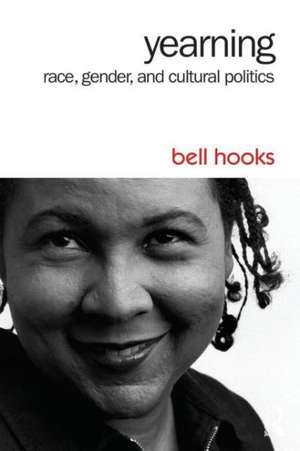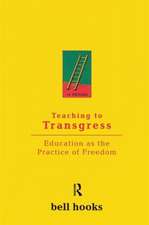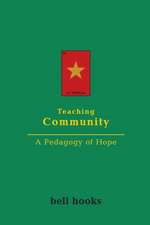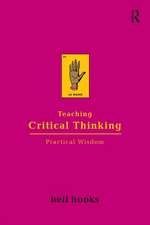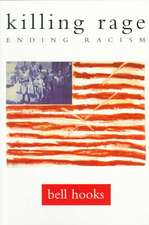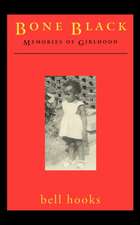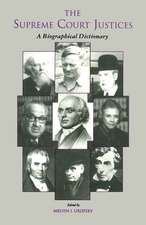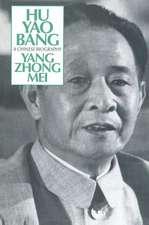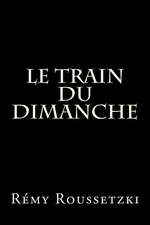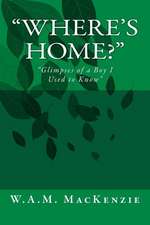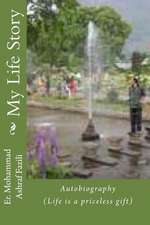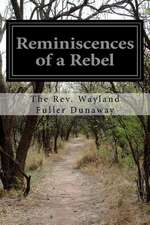Yearning: Race, Gender, and Cultural Politics
Autor Bell Hooksen Limba Engleză Paperback – 27 oct 2014
Preț: 244.80 lei
Nou
Puncte Express: 367
Preț estimativ în valută:
46.84€ • 49.04$ • 38.76£
46.84€ • 49.04$ • 38.76£
Carte tipărită la comandă
Livrare economică 05-19 aprilie
Preluare comenzi: 021 569.72.76
Specificații
ISBN-13: 9781138821750
ISBN-10: 1138821756
Pagini: 250
Dimensiuni: 138 x 216 x 15 mm
Greutate: 0.3 kg
Ediția:Revised
Editura: Taylor & Francis
Colecția Routledge
Locul publicării:Oxford, United Kingdom
ISBN-10: 1138821756
Pagini: 250
Dimensiuni: 138 x 216 x 15 mm
Greutate: 0.3 kg
Ediția:Revised
Editura: Taylor & Francis
Colecția Routledge
Locul publicării:Oxford, United Kingdom
Public țintă
General, Postgraduate, and UndergraduateCuprins
Preface to the New Edition 1. Liberation Scenes: Speak this Yearning 2. The Politics of Radical Black Subjectivity 3. Postmodern Blackness 4. The Chitlin Circuit: On Black Community 5. Homeplace: A Site of Resistance 6. Critical Interrogation: Talking Race, Resisting Racism 7. Reflections on Race and Sex 8. Representations: Feminism and Black Masculinity 9. Sitting at the Feet of the Messenger: Remembering Malcolm X 10. Third World Diva Girls: Politics of Feminist Solidarity 11. An Aesthetic of Blackness: Strange and Oppositional 12. Aesthetic Inheritances: History Worked by Hand 13. Culture to Culture: Ethnography and Cultural Studies as Critical Intervention 14. Saving Black Folk Culture: Zora Neale Hurston as Anthropologist and Writer 15. Choosing the Margin as a Space of Radical Openness 16. Stylish Nihilism: Race, Sex, and Class at the Movies 17. Representing Whiteness: Seeing Wings of Desire 18. Counter-Hegemonic Art: Do the Right Thing 19. A Call for Militant Resistance 20. Seductive Sexualities: Representing Blackness in Poetry and on Screen 21. Black Women and Men: Partnership in the 1990s 22. An Interview with bell hooks by Gloria Watkins: No, Not Talking Back, January 1989 23. A Final Yearning: January 1990
Notă biografică
A cultural critic, an intellectual, and a feminist writer, bell hooks is best known for classic books including Ain’t I a Woman, Bone Black, All About Love, Rock My Soul, Belonging, We Real Cool, Where We Stand, Teaching to Transgress, Teaching Community, Outlaw Culture, and Reel to Real. hooks is Distinguished Professor in Residence in Appalachian Studies at Berea College, and resides in her home state of Kentucky.
Recenzii
Praise for the book:
"For hooks, radical cultural criticism is rooted in a commitment to black liberation struggle. She examines representations of black people and black life in literature and popular culture to understand how such representations enhance and undermine the capacity of African-Americans to determine their own fate. She focuses, in particular, on the ways in which such representations work to either enslave or liberate blacks, reinforce or challenge racism in whites, and sustain or subvert white supremacy. She also remains critical of the ways in which both women's liberation and black liberation continue to be practiced as if black women did not exist." —Clifford L. Staples, Postmodern Culture (1992)
"For hooks, radical cultural criticism is rooted in a commitment to black liberation struggle. She examines representations of black people and black life in literature and popular culture to understand how such representations enhance and undermine the capacity of African-Americans to determine their own fate. She focuses, in particular, on the ways in which such representations work to either enslave or liberate blacks, reinforce or challenge racism in whites, and sustain or subvert white supremacy. She also remains critical of the ways in which both women's liberation and black liberation continue to be practiced as if black women did not exist." —Clifford L. Staples, Postmodern Culture (1992)
Descriere
For bell hooks, the best cultural criticism sees no need to separate politics from the pleasure of reading. Yearning collects together some of hooks's classic and early pieces of cultural criticism from the '80s. Addressing topics like pedagogy, postmodernism, and politics, hooks examines a variety of cultural artifacts, from Spike Lee's film Do the Right Thing and Wim Wenders's film Wings of Desire to the writings of Zora Neale Hurston and Toni Morrison. The result is a poignant collection of essays which, like all of hooks's work, is above all else concerned with transforming oppressive structures of domination.
